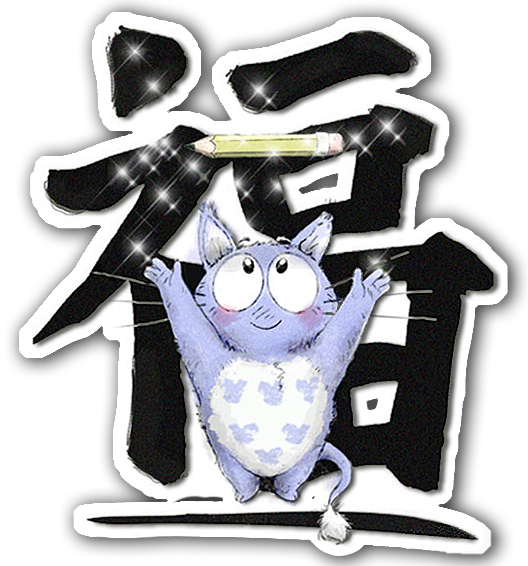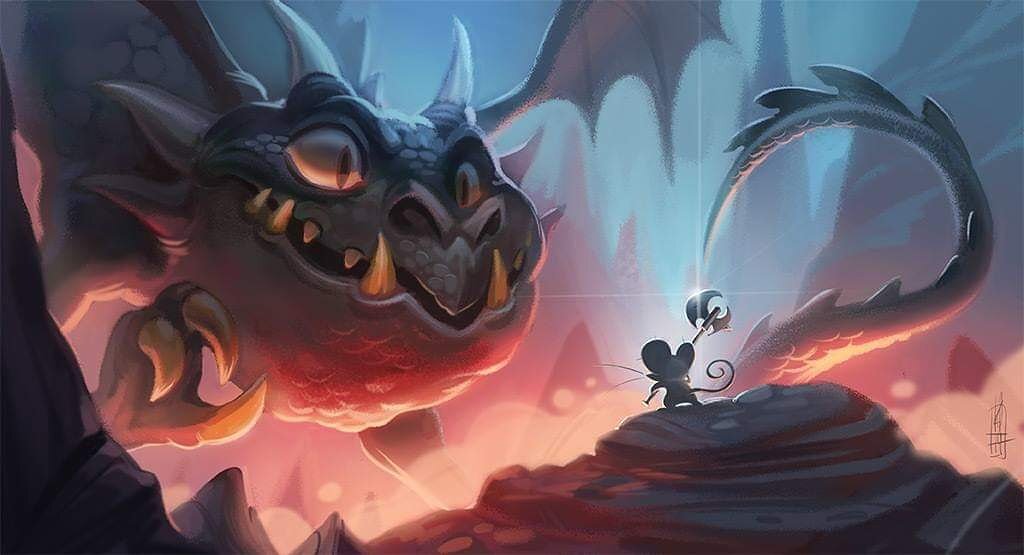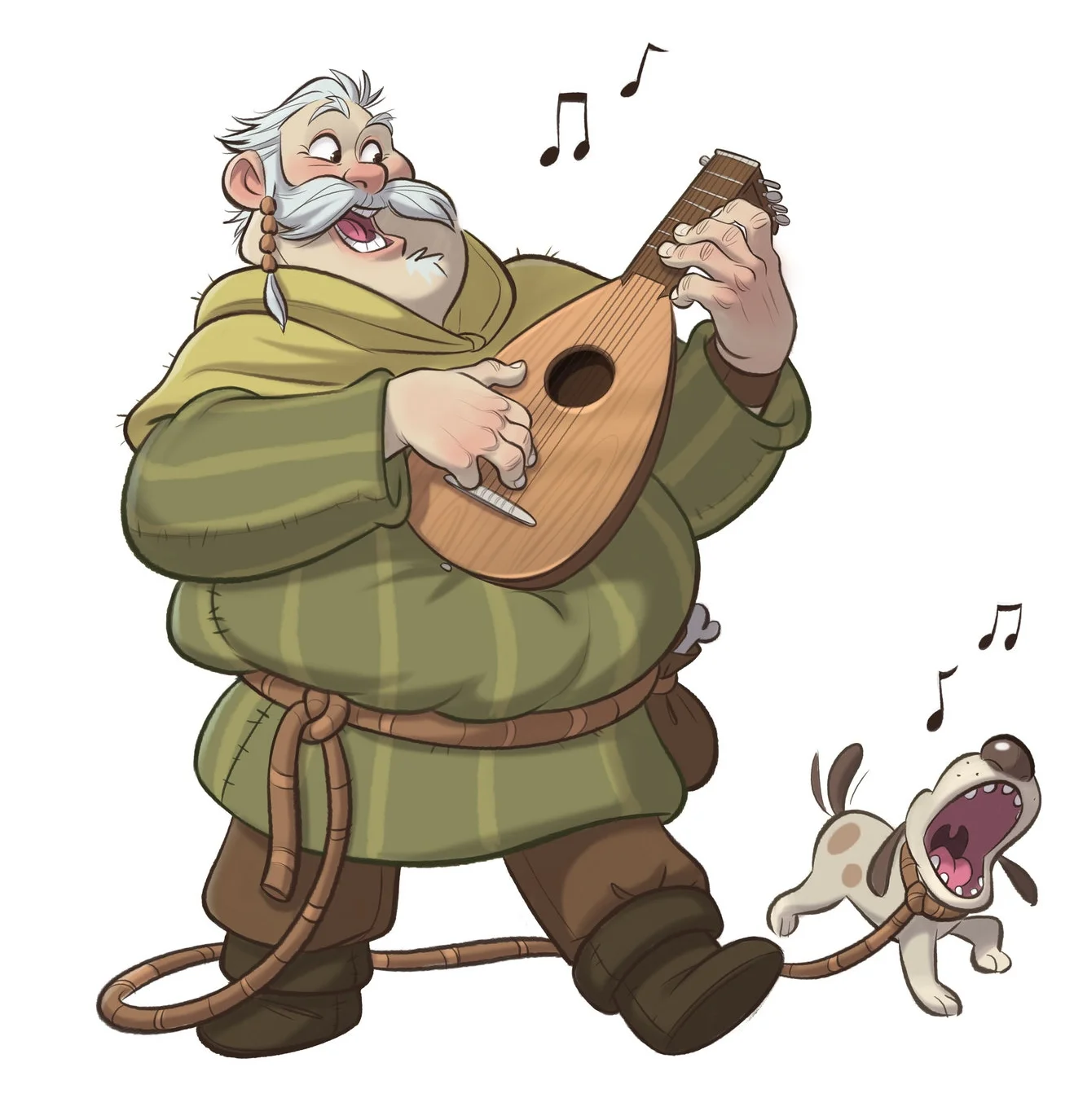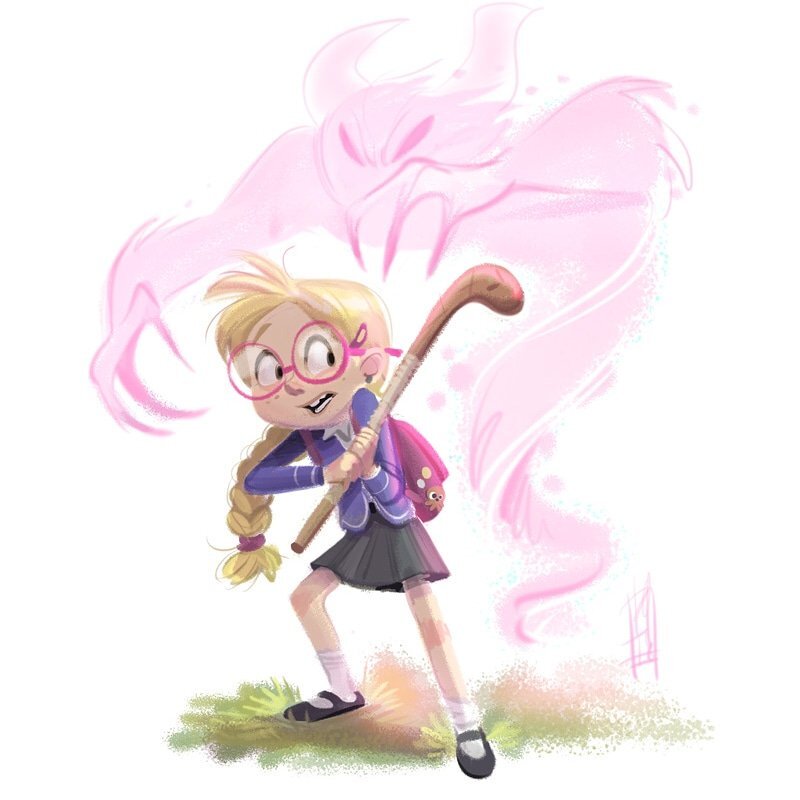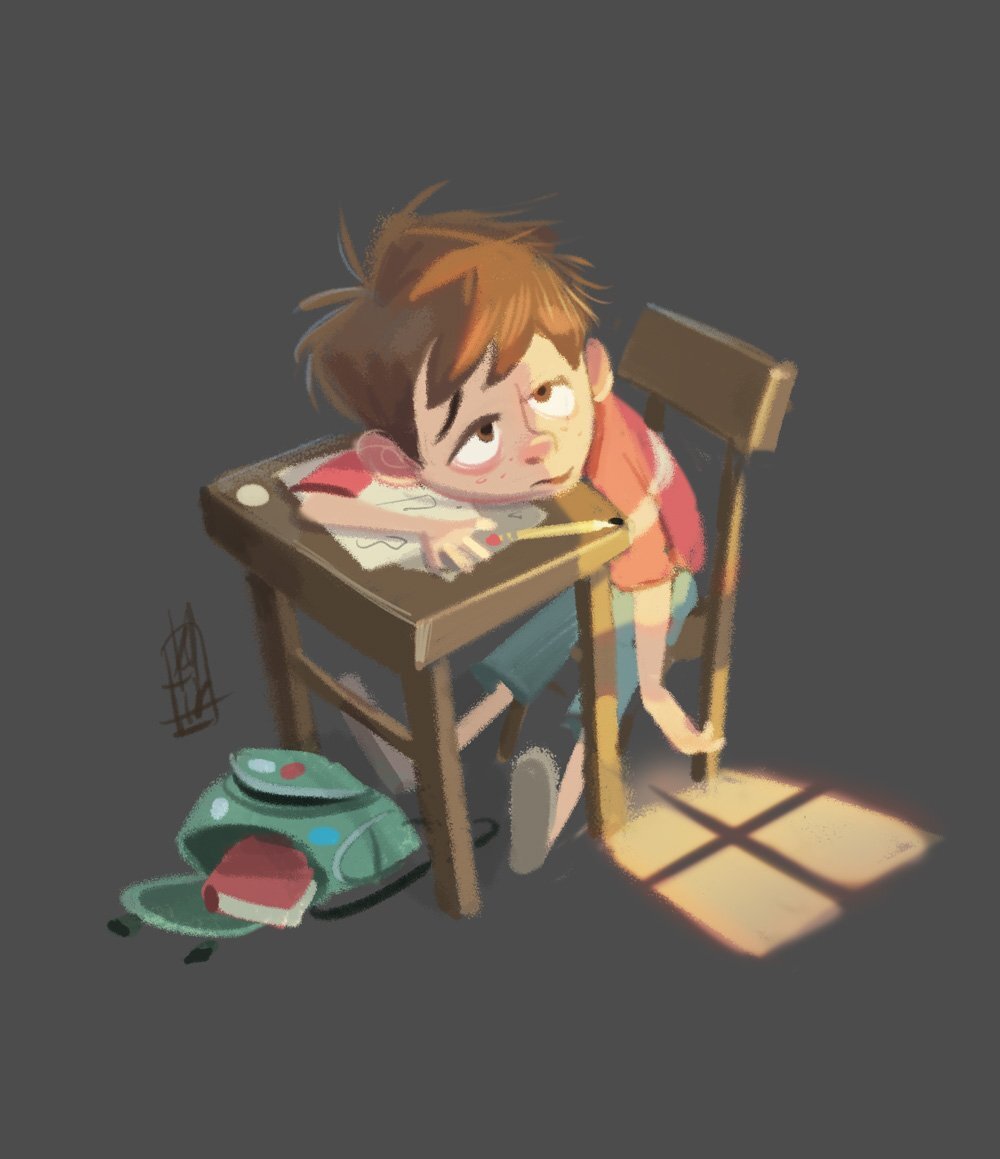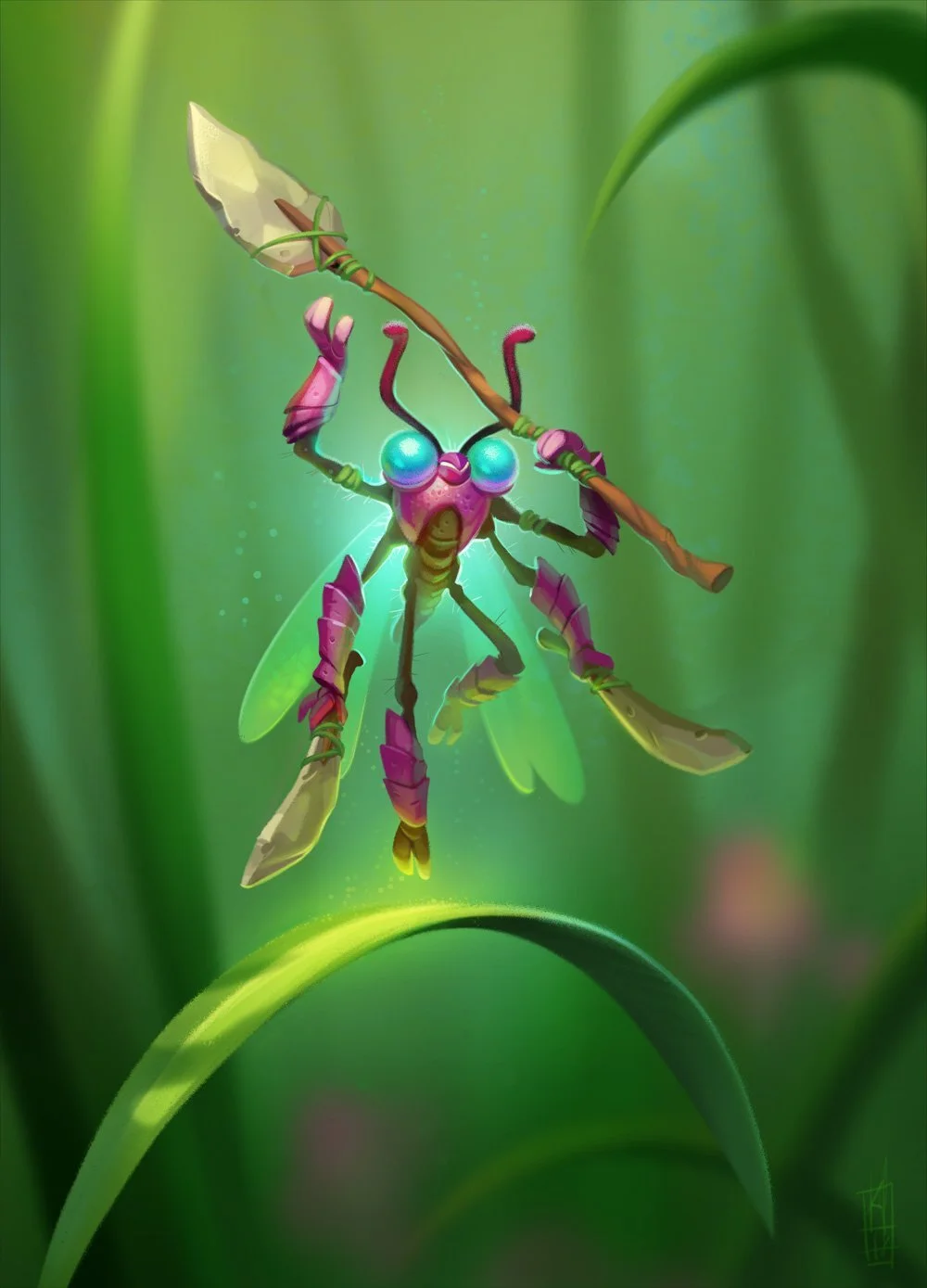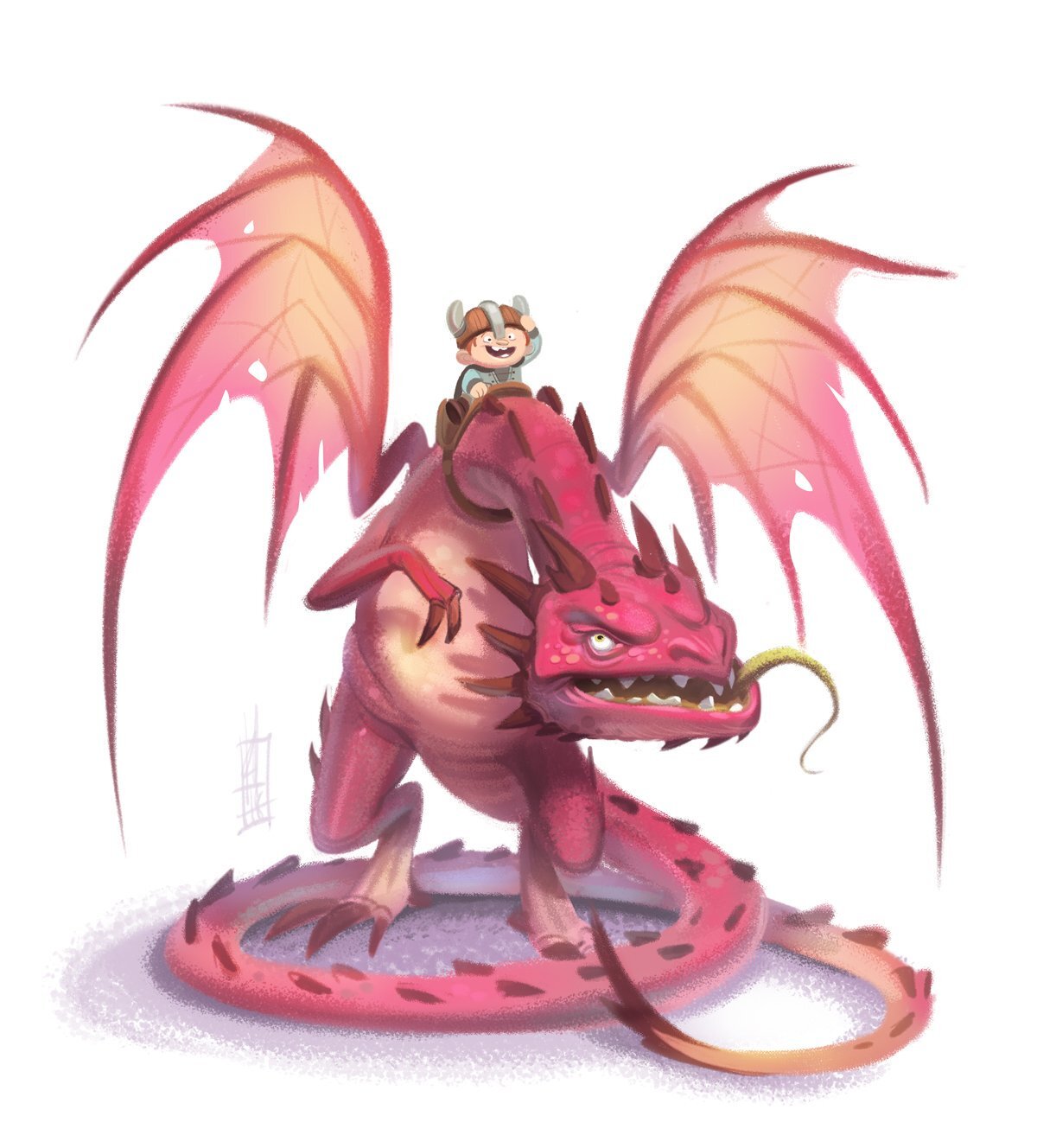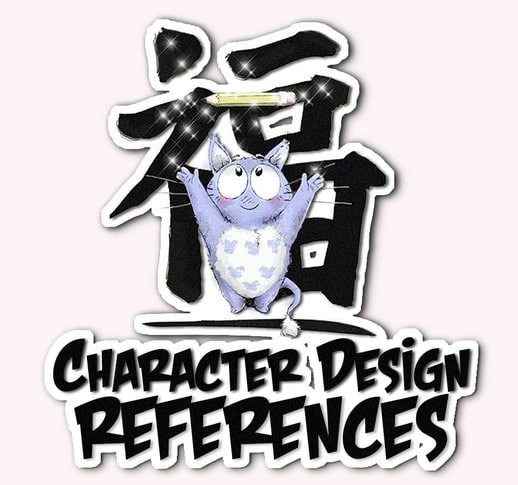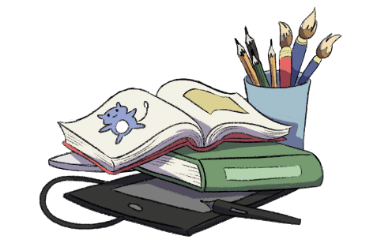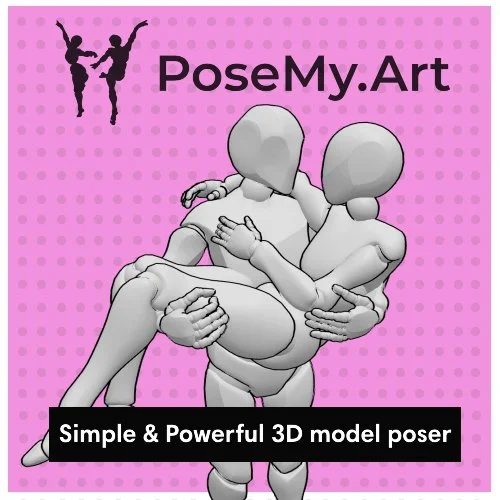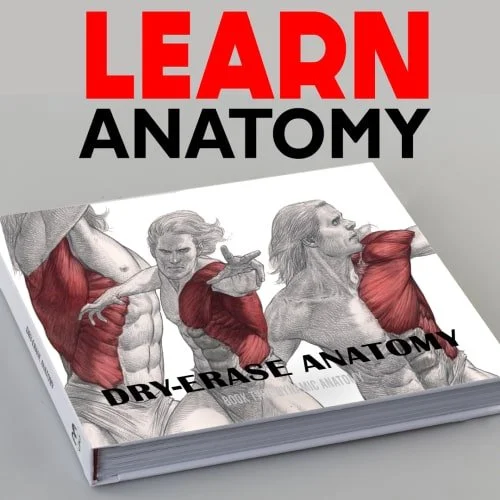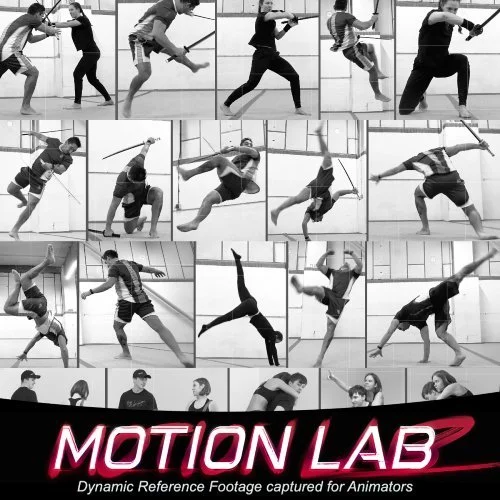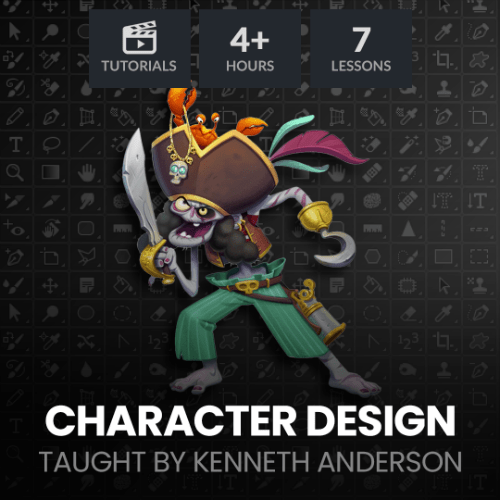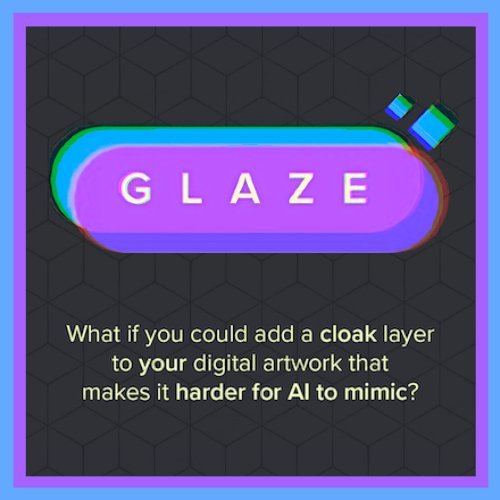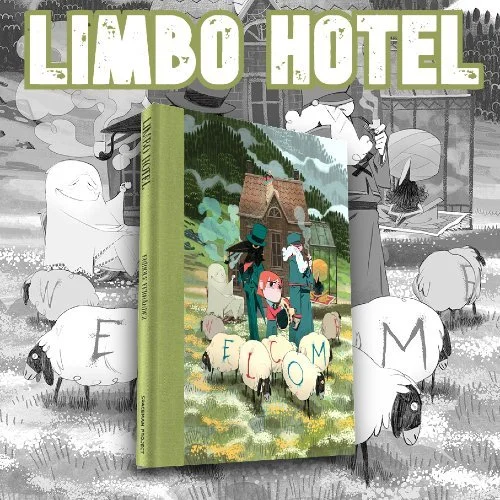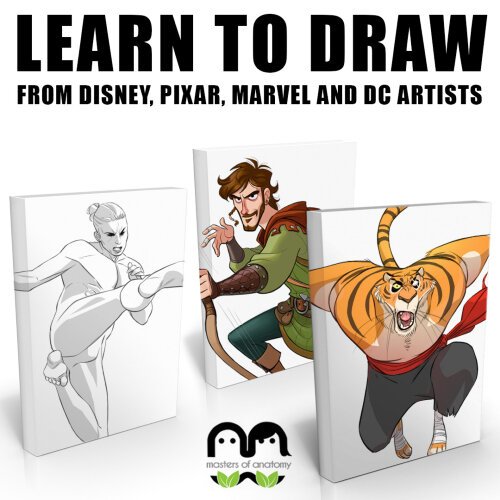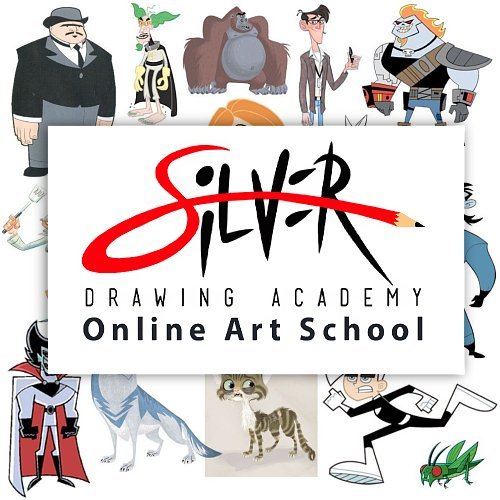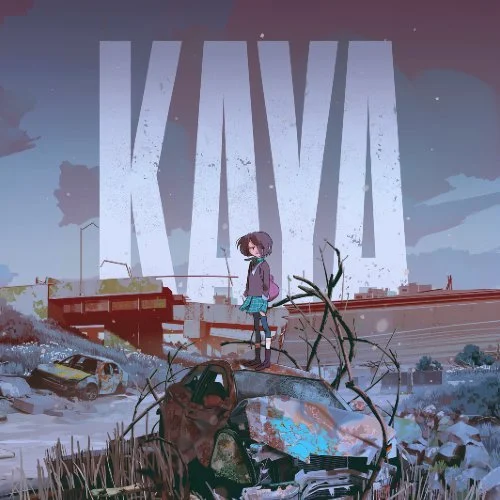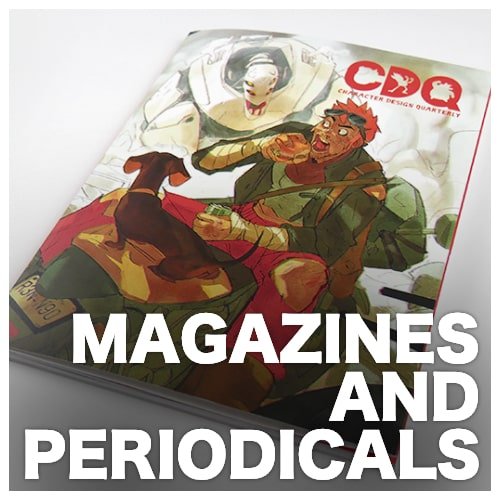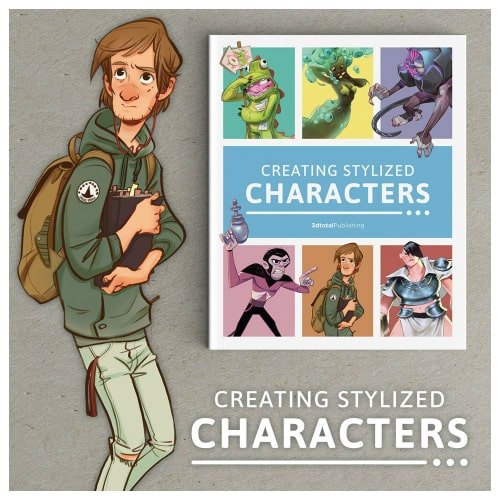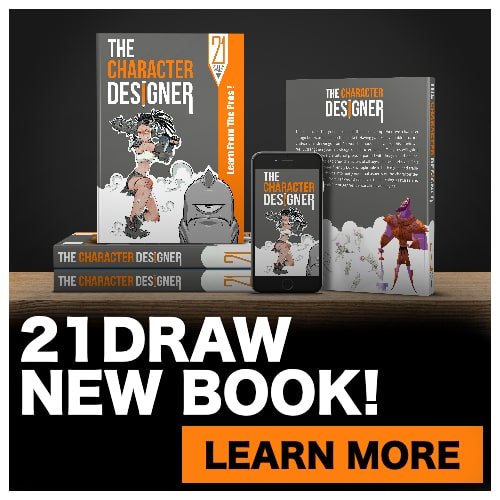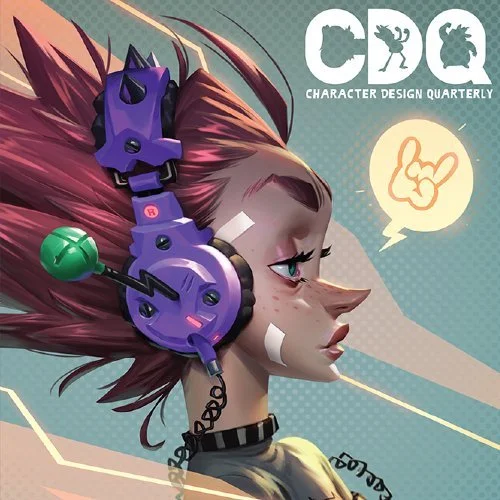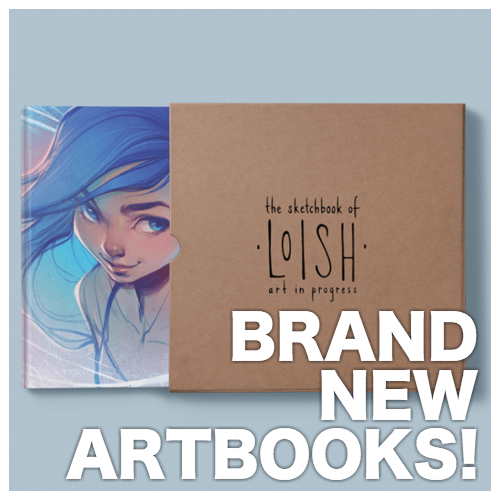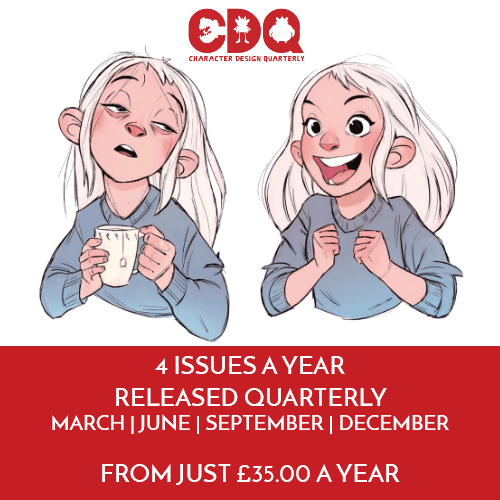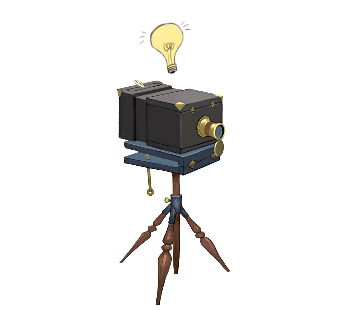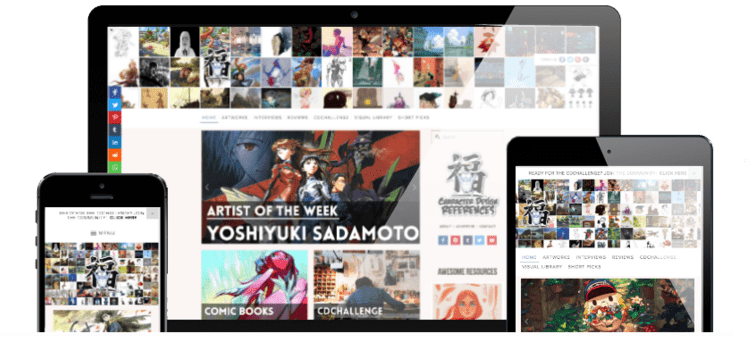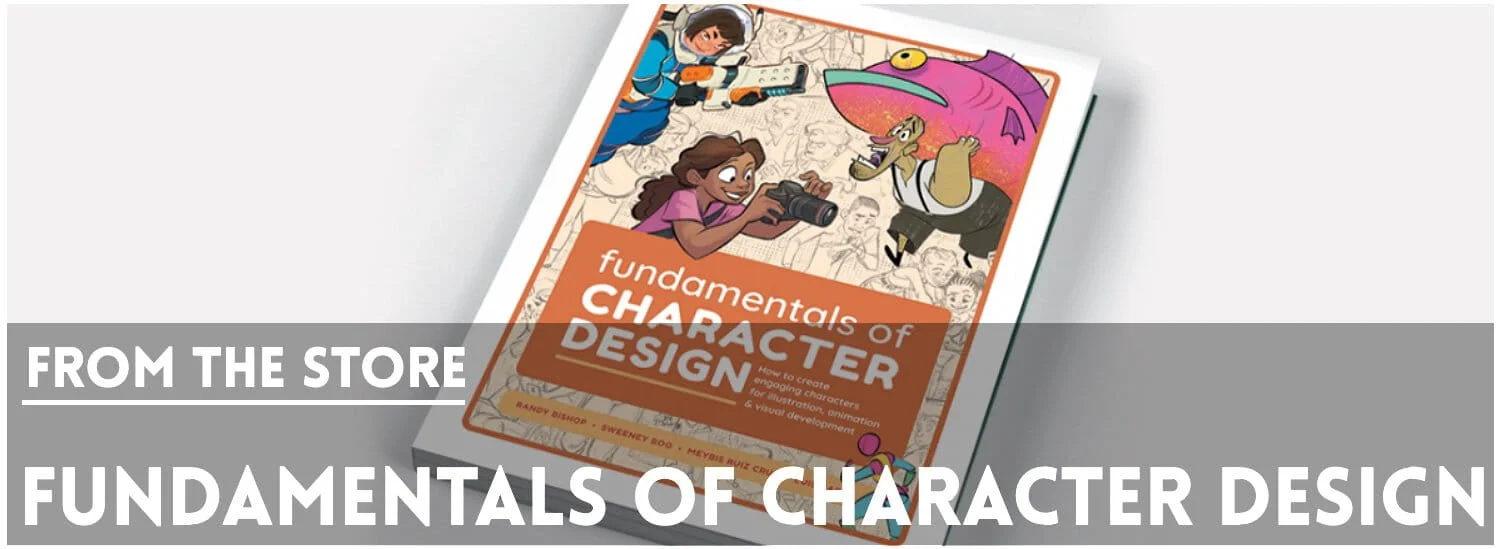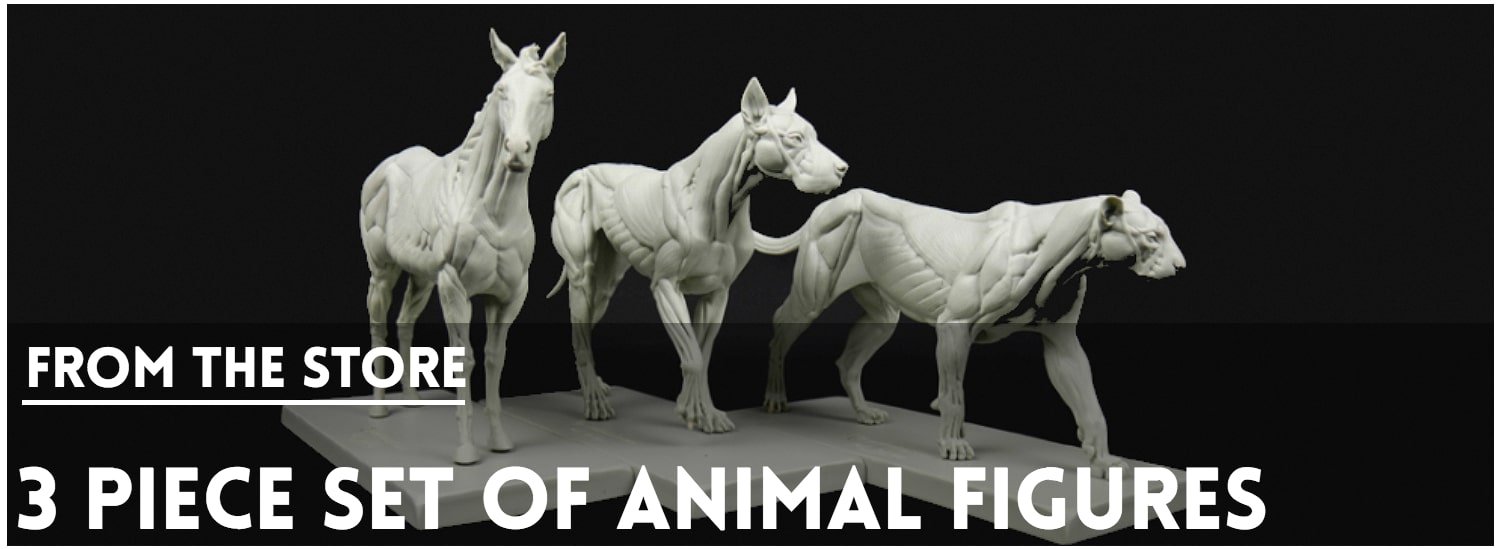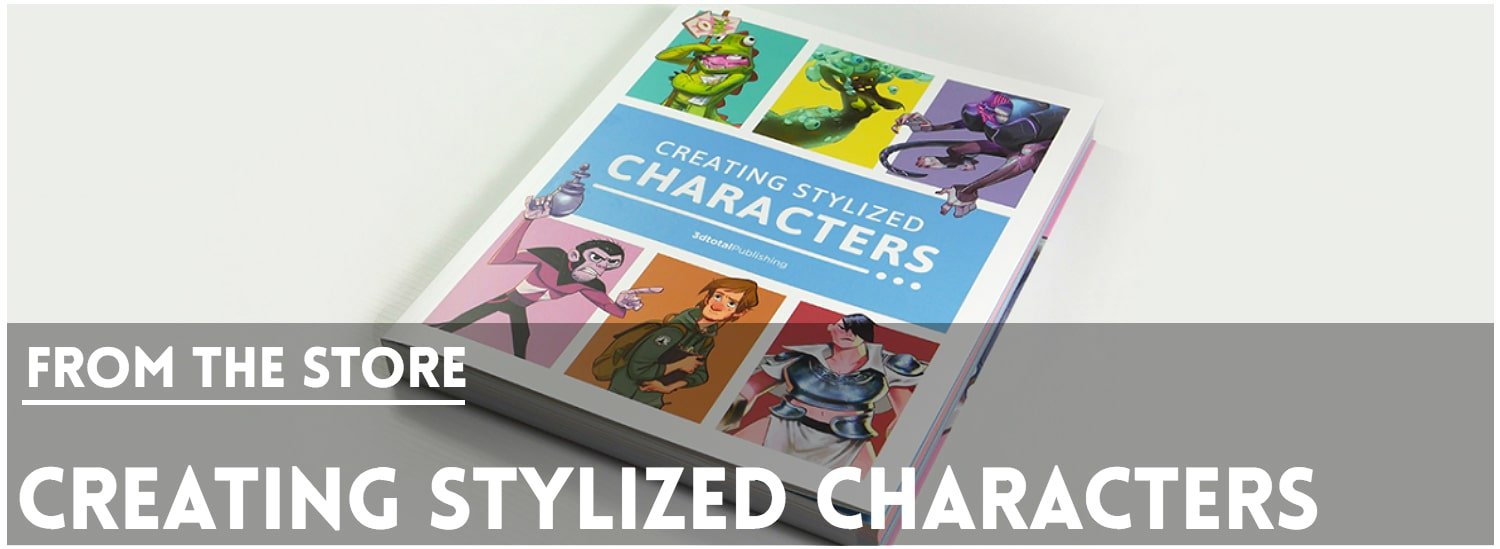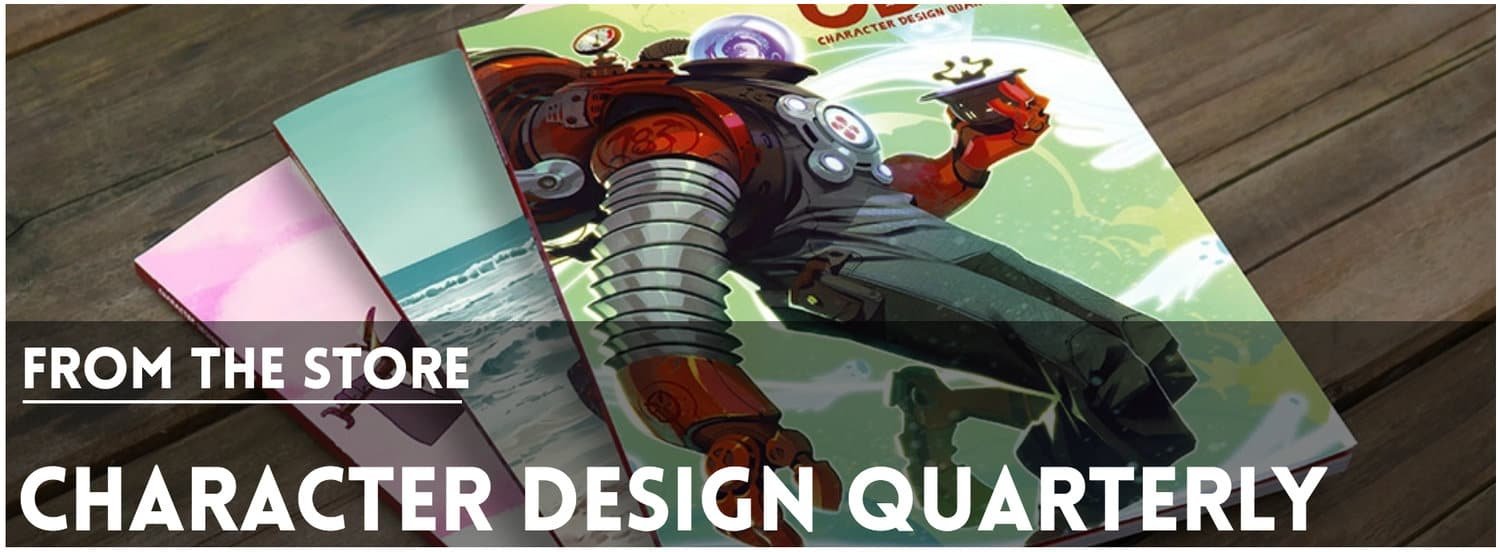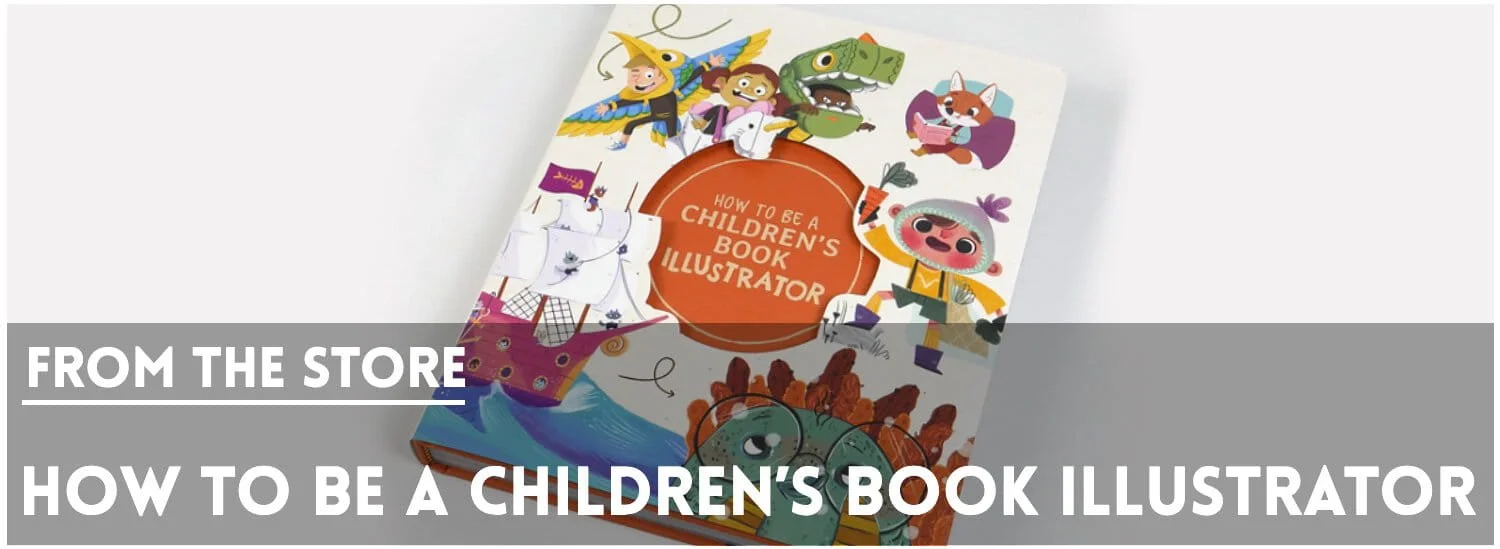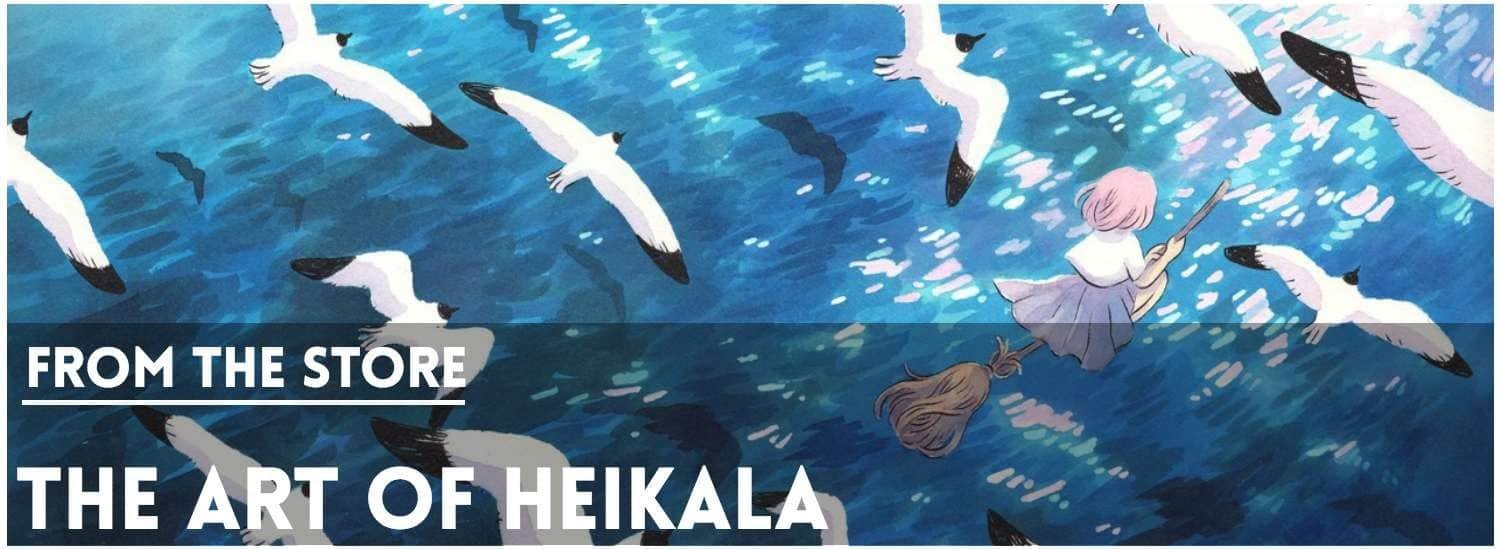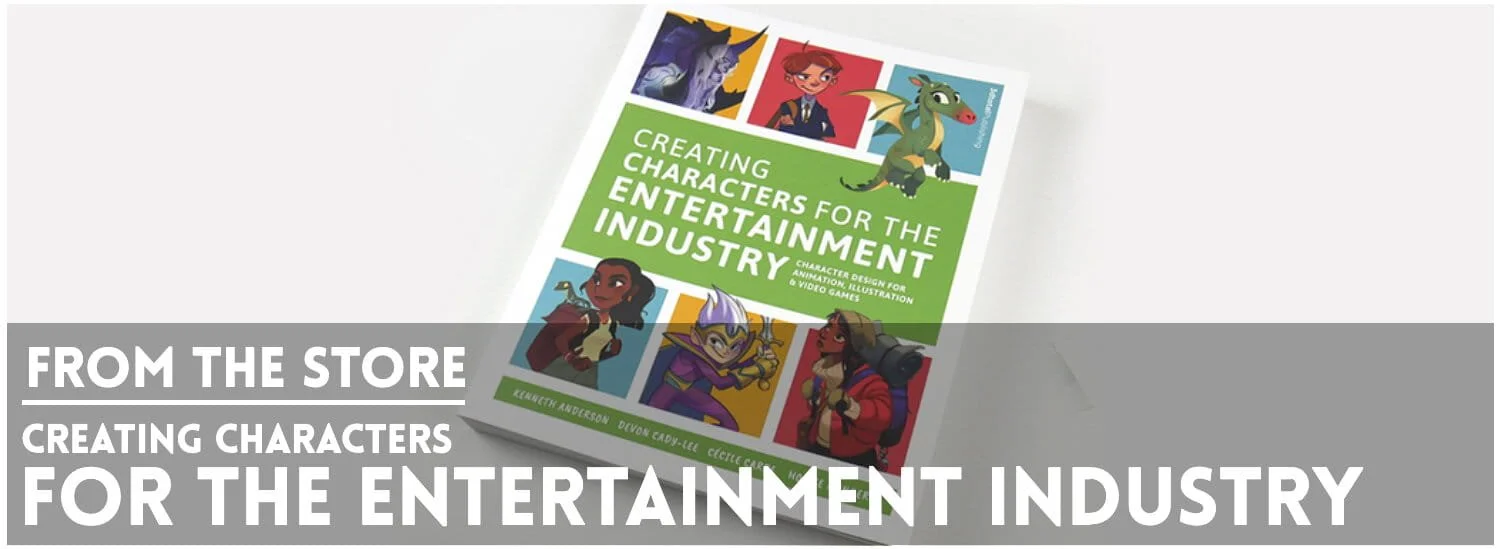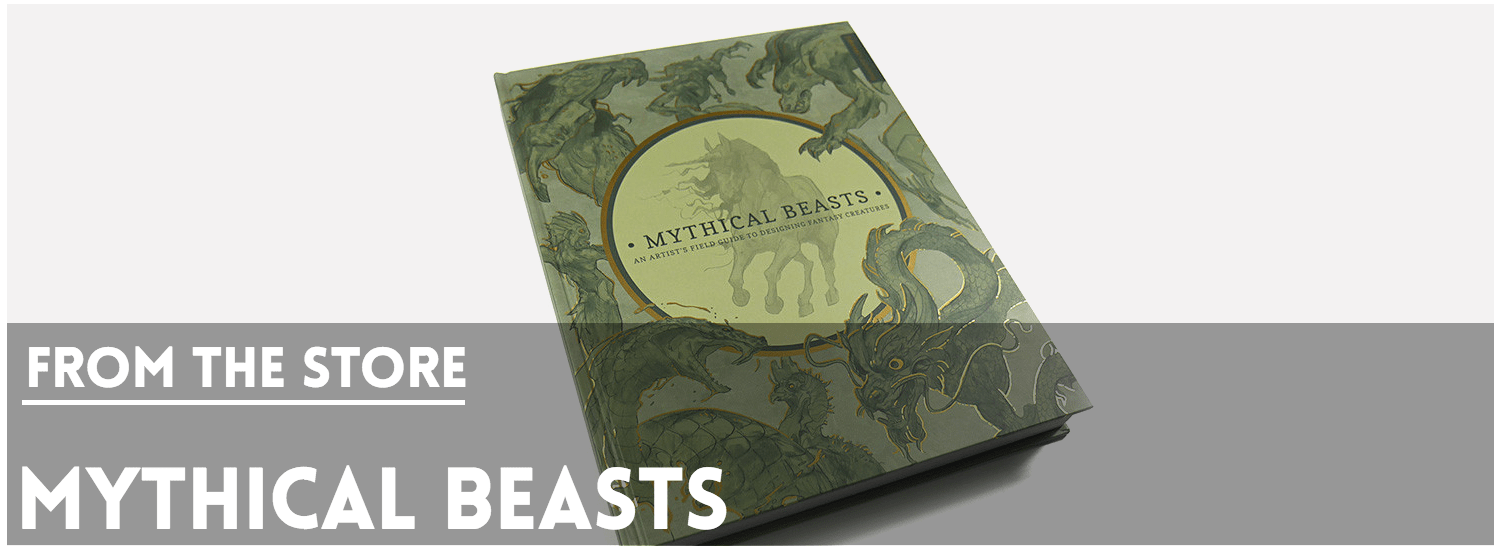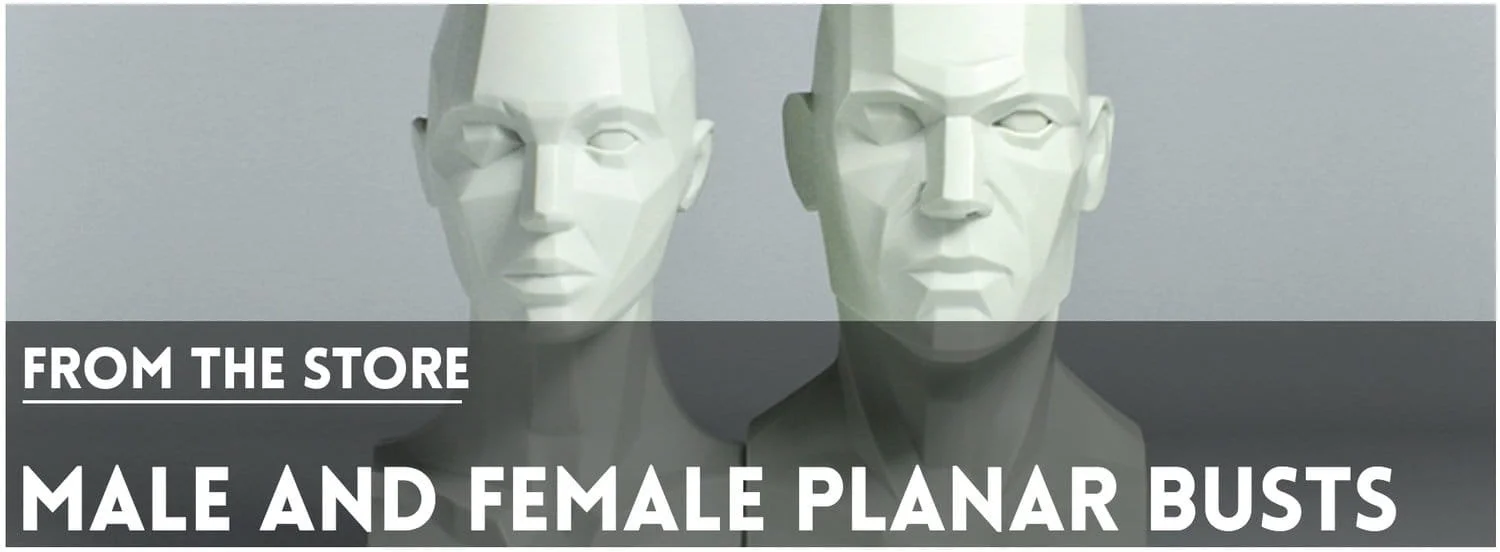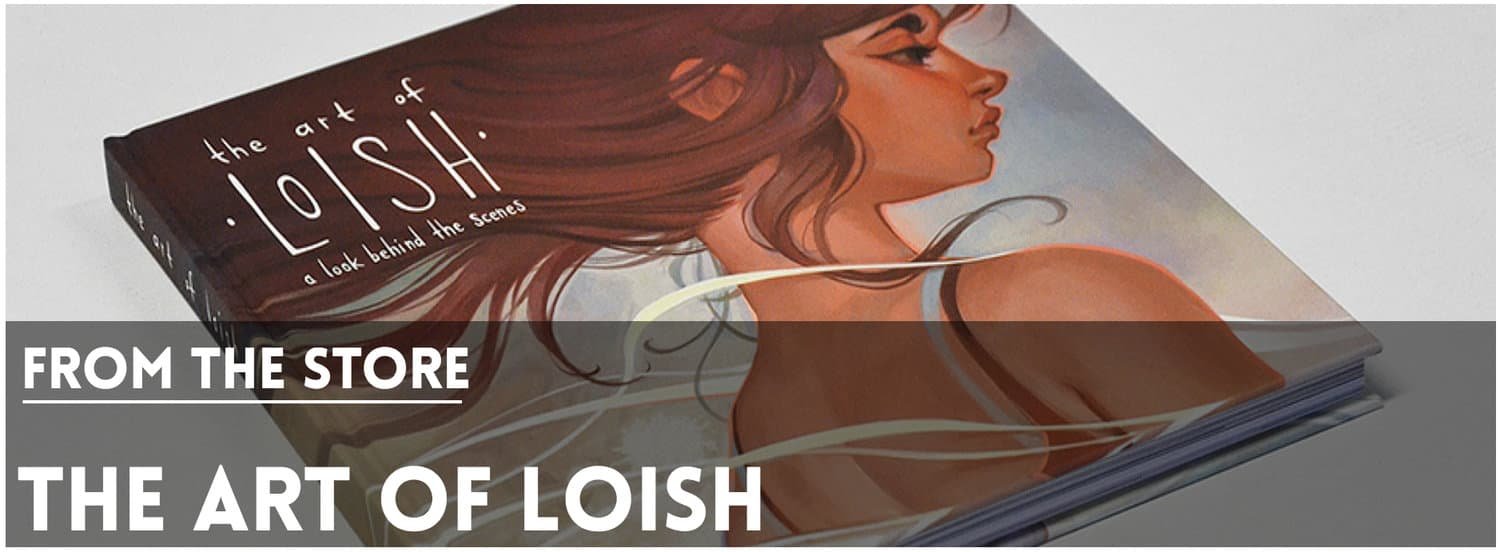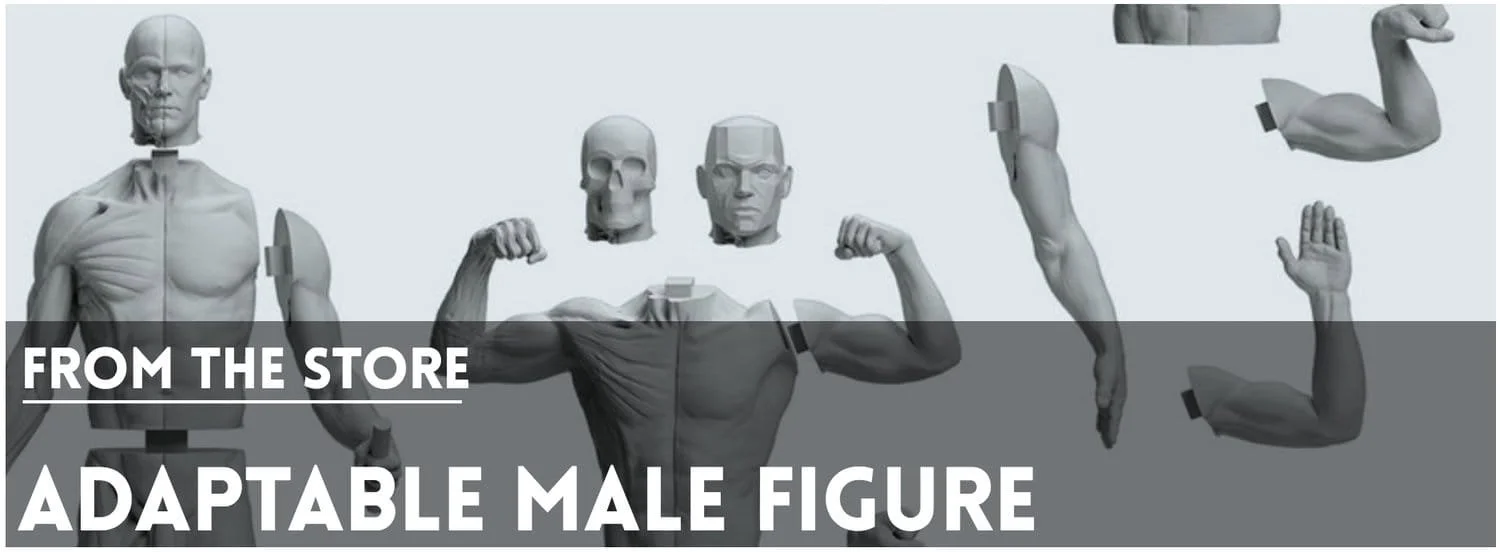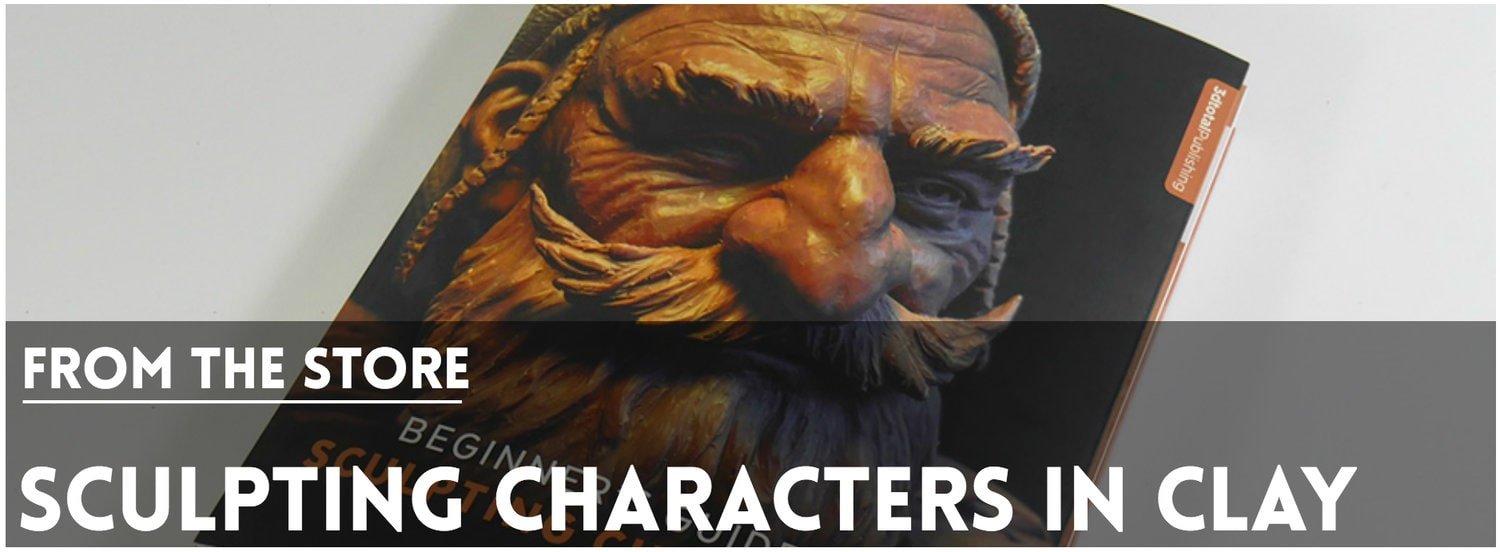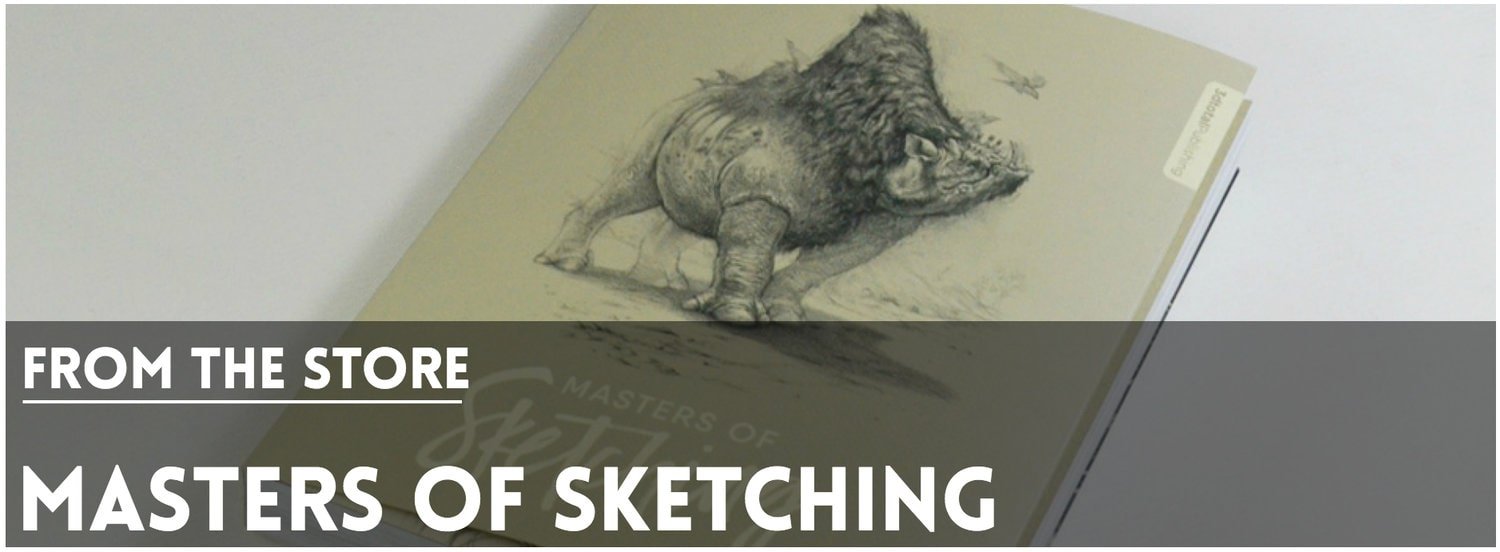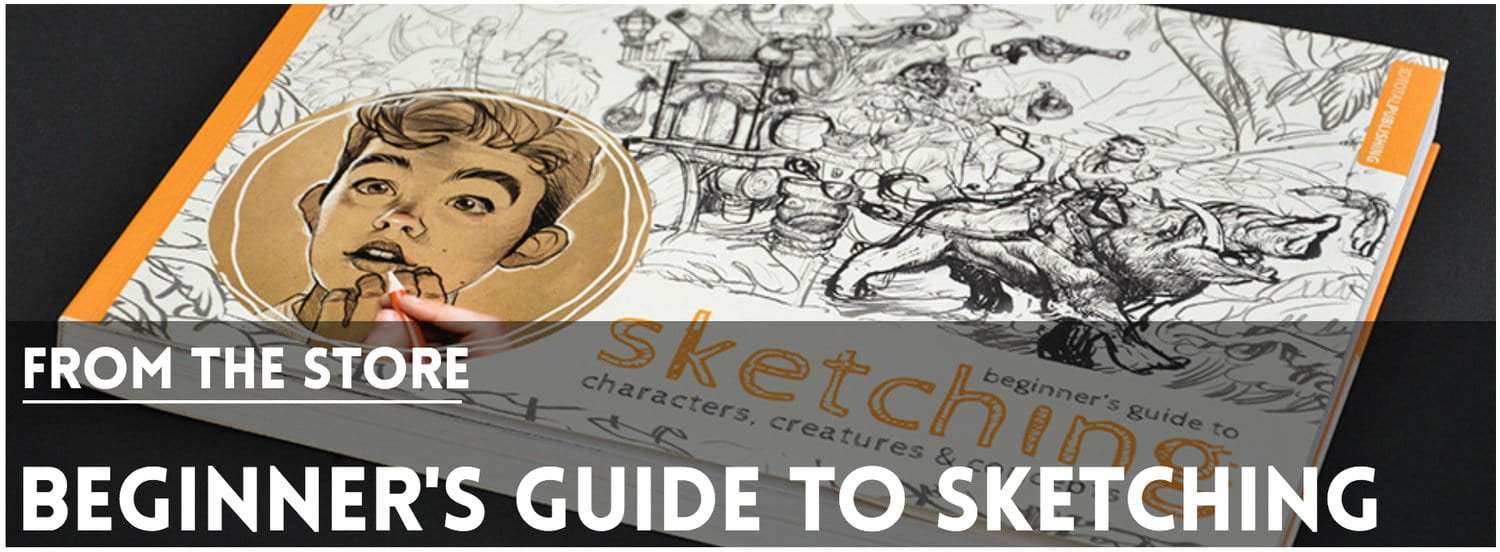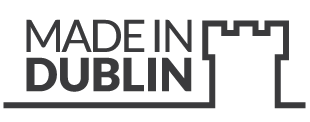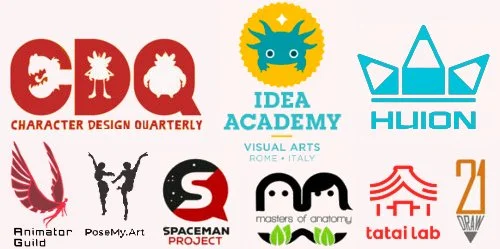Kenneth Anderson
/Where did you grow up? At what age did you start thinking about pursuing an artistic career?
I grew up in a small Scottish village on the outskirts of Glasgow. It was a great place to enjoy childhood, lot of woods and greenery, spaces to play and to let the imagination run wild. We get a lot of rain in Scotland so there were many rainy Sunday afternoons to be filled with indoor creative pursuits. I was always into drawing, like most kids - I just kept doing it when the other kids stopped. It was always just for fun when I was growing up and I never really considered an artistic career (or any career really) until I first saw Wallace and Gromit on TV one year at Christmas. I was probably 11 years old at that time and from that moment on I was obsessed with animation and I saw myself becoming an animator.
Did you go to an art school or are you self taught? How did you develop your skills?
Both! I went to an art school here in Scotland straight after high school. After a general year of art and design I specialised in animation. I was mostly learning how to animate at this point, traditionally and digitally, some stop motion and 3D too. We touched on character design and visual development but I feel I didn’t really start learning more about this until my final year and most of it was self directed. After art school I really knuckled down and started learning character design and illustration, mostly in my own time but also in my day job as a junior artist in a mobile games company. I spent hours after work just drawing in photoshop, trying to push my design skills and watching online tutorials and reading what few books I could find on the subject. There was a lot of trial and error - I would just draw and experiment and try and do something better the next time around. I also discovered blogging and found inspiration online from all the other amazing artists out there around the world. It really helped me up my game. Add to that all my artistic friends and work colleagues - it helps having a group of people around you who aren’t afraid to critique your art and engage in some friendly competition. At the same time I have continued life drawing whether in art school or not. It has been so important to me all these years. I started life drawing in high school and try my best to keep up regular sessions even when I am travelling. Oh and I shouldn’t forget all the countless hours I spent as a kid, drawing comics, making characters out of plasticine, copying what I saw in comic books. All that informed the way I draw today.
Have you always been supported in your artistic path or has it been challenging to let your family and friends understand your choice?
I had it pretty easy. My parents were always supportive of my passion for drawing - they signed me up for Saturday morning art classes at the Glasgow School of Art when I was a young teen. Both my mum and dad encouraged my drawing so I owe them both so much gratitude as they could have easily have put me off pursuing it. When it came time for me to go to university though, my choice of animation was a bit of a sticking point. They never stopped me doing what I wanted to do but suggested I study maybe graphic design or something and then move into animation. I think they were worried about my job prospects. But once I got my first job post uni I think they relaxed and presumed I knew what I was doing. I never told them that I didn’t. My high school art teachers Dugald Macinnes and Mr Stirling (I still don’t know his first name!) were really supportive of what I wanted to do and were super encouraging. I don’t think I would have gotten into art school without their guidance. As for friends, they all thought it was a cool thing to pursue! At least I think they did. They were probably secretly thinking, yeh, he’s gonna end up permanently on the dole. (Government welfare). But I don’t remember anyone criticising me for my choice - teachers, friends and family have all been pretty supportive, which I think, in retrospect, I’m surprised about. It’s feels a ridiculous career path sometimes so I would have expected more resistance!
What was the strongest influence you had when you were growing up ( artists, movies, cartoons, comics etc.. ) ?
So many! I think my first big influence was my dad. He could really draw. He would draw me Ninja Turtles and stuff and it would blow me away. I think having a parent who could draw as a kid made me want to draw more and get better. It was inspiring. As a toddler I loved all those British stop motion shows like Postman Pat, Bertha and Trapdoor, I think this informed my love of the art form later on. As I got a bit older I was watching things like Fraggle Rock, Thundercats, Mask and my favourite cartoon ever, Teenage Mutant Ninja Turtles. I watched anything with fun characters I guess! I was also introduced to comics as a kid, local Scottish ones like Oor Wullie and The Broons. I have fond memories of reading these in bed when I should have been sleeping. I would also sneak into our loft and read my dads old Snoopy books and superhero comics from the 60s. Then one birthday, a friend gave me a Calvin and Hobbes book. I was hooked! They became my comic obsession, I would spend hours reading them, Bill Watterson’s drawing was so full of life and energy.
Later on, when I was a teen, I started getting into superhero comics, mainly Wolverine. I collected it for a while, but Calvin and Hobbes has stuck with me all these years and probably been my biggest comic influence. I also really loved those puzzle adventure books by Usbourne publishing. My particular favourite was Agent Arthur and his dog Sleuth. They went on adventures solving crimes and mysteries and there were puzzles throughout the book. I can’t remember being into any films back then, I enjoyed the occasional Disney film but I wasn’t super into them. I was freaked out by Labyrinth but the world and the characters had a big impact on me while Indiana Jones was the first film series I remember really blowing me away. I was more into games - my dad loved games and bought loads of them. Even as a young kid we were playing games in the house on an old BBC micro that he had, that must have been the 80’s/early 90’s.. Then when he bought the first family PC I got hooked on adventure point and click games - Monkey Island, Day of the Tentacle, Sam N Max. Games were my thing back then, I definitely grew up on them and they inspired me for sure. Then, as I mentioned already, I discovered Wallace and Gromit. I was obsessed with them in my early teens and to this day. They were a huge influence on everything I do, the biggest influence on my career as they gave me that first “a-ha!” moment, a feeling in my gut of “I want to do that!”.
Did you have a favourite subject to draw when you were a child and do you still have one today? If you do, what makes it so special?
I guess I was always drawn towards creating characters of some kind. I usually drew characters instead of backgrounds or something. So I would create my own comic strips and random characters, but they were usually a rip off of what I was reading or watching at the time. I enjoyed drawing robots, pirates and my own silly comic strips. I remember one I created called “Cookie” which was about an annoying kid who liked to eat stuff. I still enjoy drawing pirates, it’s probably the thing that has stuck with me throughout my life. I can’t pinpoint exactly why but I have a feeling it is a combination of my love for the Monkey Island games and Pirate Lego. Those two things pretty much defined my childhood, I have many happy memories of them. I guess I am still tapping into those memories today.
What is your process in creating your art and what are your favourite tools?
These days I mostly work digitally, straight into Photoshop. It's just faster that way I find, especially for 'concepting' characters. I used to do a lot of my initial work with pencil and paper and scan it in and colour in Photoshop but I like being able to do everything from start to finish digitally, it gives me more flexibility for where I work - I can carry a laptop around with me but not a scanner. It also means I don’t have a lot of paper cluttering up my already cluttered life. I do miss traditional work though - I would like to get back into it maybe for personal projects. I still do some thumbnails for projects in my sketchbook. Photoshop is my favourite piece of software, I've been using it since I was a teenager and it's just so intuitive to me now. Maybe I should explore other software (I used to the Gimp for a while) but I am so comfortable with it and if it isn’t broken don’t fix it! I mainly use default brushes or the odd custom brush I have discovered over the years, nothing fancy. I do like Kyle T Webster’s brushes.
When I do go traditional, it's mostly moleskin sketchbook and col erase animation pencils. I love those pencils - I have been using them since my 2D animation days. They are so nice to draw with, waxy and not chalky. Erasable too... I do most of my work on a cintiq 22HD - buying a Cintiq changed my work life. I'm so much faster on it I don't know how I managed for all those years using a Wacom bamboo. My laptop of choice is a surface pro 4 - I can take it anywhere and work on the road. It’s not as fast or as easy on the surface compared to the Cintiq, but I find I can do 70% of what I do on there without much issue.
From the initial client idea to the final work: What goes through your mind and what is the method you use when starting a project? Could you describe it?
I usually start with a feeling of mild panic and I’m not being tongue in cheek here - unless it’s a subject that really excites me or I can immediately visualise, then I worry about how I am going to approach the job. With experience though, I find the best remedy is to start drawing and trust in the process. It’s hard sometimes to work from a blank slate, that is why it is important to get something on paper quickly or get stuck into some research - that’s a starting point, an initial momentum. It’s easier to change course and find a direction when you are already moving! So usually, I start by reading through the client notes. They normally provide a basic idea of what they want, sometimes a very clear idea. I prefer it though when they leave a little room for interpretation and creativity. I think it’s important here to focus on the general themes and ideas they are suggesting along with any problems that really need solved and anything they really want to steer clear of.
For example, I might have to design a character and be given some style reference, or ideas from other projects they like. Along with this I usually get a character description, which is both physical and mental and then maybe some script segments or story ideas for the characters to set them in context. Sometimes the reference provided can be too much and it gives too many directions and it’s difficult to know where to focus. Other times it can be too vague. In these scenarios I find the best solution is to draw something, thinking about the limitations in place, present to the client and take it from there. I always start with a bit of research - it doesn’t have to be much. If it is a subject I am unfamiliar with I will spend a bit more time here. So, say I have to draw a frog character - I will research frogs! Of course reference is invaluable for coming up with something unique, otherwise we just draw variations on the same thing all the time. Sometimes if the project I am working on has a lot more depth and scope, I might start thinking deeper about character backstory and thinking about real people who I know, or have seen in films etc that might give me a hook to draw from. There should always be a bit of that in every character design, but sometimes there really isn’t the scope or time for deep character analysis and exploration in a project, which is a shame. The deadline and budget really are the biggest creative limitations sometimes.
So, once I have mulled over the brief for a bit and feel I have researched enough, I think about what I might draw or design and take it from there, starting with thumbnail ideas to present to the client. I always start with a big page of thumbnails - it’s a quick way to generate ideas and variety to show to a client and find a direction early in the process. Once I start drawing, usually ideas start to flow and before I know it I have a page of thumbnails.
What part of the creation process is the most fun and easy and what part is the hardest?
The fun bit I guess is the initial idea dump stage where you can just experiment and come up with lots of ideas. It's the most free and creative part of the job. At the same time though, it can also be the hardest part - coming up with unique ideas which fit the client brief while providing variety and character, storytelling. It can be stressful at times, sometimes it takes a while before ideas start to present themselves. I think I have a love hate relationship with the process!
Saying that I do get a thrill when finishing up illustrations and getting to do the details which can really bring a piece to life. That’s at the point where most of the problem solving and hard work should be over and the brain can relax a bit. For personal work I guess the whole process can be fun, although I find I do my best work when presented with a client brief and some clear art direction. Or when I am inspired and have a clear vision in my head - in those moments, when you are in the zone, that is fun, enjoyable.
What is a typical day for you, and who are the people you work, collaborate or share your creative time with?
Well I work from home, so my typical day starts with having breakfast and walking to my desk. I check emails, follow up on stuff I need to, maybe send some invoices. If I'm juggling multiple projects I plan my day out in my head and generally stick to that plan. I generally work until lunch time usually after 3 hours work or so, have my lunch break and then continue until dinner time. Some nights I end up working late on other projects or catching up on stuff if I started late, it just depends what's on my schedule at the time.
The beauty of being freelance is generally clients trust you to get on with the work and put in the hours but without much stipulation of when those hours are. So if it's a nice day I might spend some time in the morning going on a bike ride and making up the time later on. Or if I feel like it, I might take an afternoon nap. That’s how I roll. Working from home does mean I don’t have much interaction with people. I communicate mainly via email to clients or via online project management software if they request it. Of course there is back and forth between myself and art directors, the occasional phone or Skype call. Mainly it’s just me and my Cintiq. Sometimes I miss having that studio environment of other creatives to bounce ideas off of and have a laugh with. At the same time though, I enjoy being able to work alone while listening to what music I like, or audio books etc without annoying anyone around me. I do make up for all this alone time by socialising out of hours, as it’s easy to get cabin fever!
What are some of the things you have learned from other artists who you have worked with or whose work you have seen?
Every time I see a piece of art I like, I learn something as I always tend to analyse why I like it. So everything is an inspiration really, it could be something simple like how a particular artist stylises hands or it could be more complex like their approach to painting light and form. I learnt a lot from my first art boss, William Hazle, back when I was in my first game job. I guess I learnt the ropes from him about being in a studio environment, responding to feedback, being art directed and really thinking about how to design for an end product. That stuff laid a foundation for everything I do today. Really though, everyone I have ever worked with has taught me something, maybe not intentionally but by osmosis. I’ve worked with some great people, too many to mention.
Is there something that you have designed that you are most proud of?
Not really. I always look at my old designs and see where I could have improved them! I guess I am happy about doing a recent ImagineFX cover. I didn’t see that coming, but I jumped at the chance when it came around. I wouldn’t say it’s my strongest work ever (see, I’m just too self critical) but it was quite a privilege to be able to do it and in a way it felt like, OK, maybe I’m a professional artist now? It still feels weird saying that.
What projects have you worked on in the past and what are you working on at the moment (if you can tell us)?
I've been lucky enough to work on a variety of projects in a variety of mediums. I first started out working on mobile games, all pixel art at the time. I've worked on a couple of traditionally animated feature films - “The Illusionist” as an inbetweener and clean up artist and “Titeuf le Film” as an animator. I then worked on a variety of other games and lots of small scale freelance gigs. I designed the character Spymouse for an iOS game. That’s probably the only character design I can think of that maybe made the light of day and didn’t end up in some development limbo somewhere… I’ve done quite a few illustrations for Saga magazine over the past few years, so any avid readers might have seen my work in there.And I did a fun illustration job a couple years back where I had to redesign a board game (The Enchanted Forest) that I used to play as a child. That blew my mind. More recently I've been involved with children's television production. When I was in Australia I worked on a cartoon network telemovie “Monster Beach” and a show called “Exchange Student Zero” mainly doing character model packs, turns and hands, expressions etc, and I've also been working in some new children's shows in development, designing characters, props and environments. These shows are still under wraps so I can't say much more than that right now, but I hope they will be out in the next year or so… Very recently, as I mentioned, I was asked to do an ImagineFX cover. It was out in the UK in late January. I guess that would be the most “visible” thing I have done in my career so far.
Do you have a long term career goal? What would your dream project be?
When I started out my goal was always to just draw for a living, then it became “become a freelance character designer”. I feel I've achieved that aim so I'm at the point where I am re-evaluating things. I would love to do a bit of feature animation development but I’m not sure I really have the skills yet. I'd also love to do more editorial or book illustration, maybe in a more traditional capacity, as I like the idea of telling holistic stories rather than just designing the characters. I think I will push more in that direction in the future. Ultimately though, I want to create something of my own, that is the dream. I have a few graphic novel ideas I’m trying to find the time to develop. I also have a couple of children's book ideas simmering away. I think that is my main long term goal - get a graphic novel or children's book made. I do a lot of work for other people's ideas so I’d really like to get stuck into some of my own. I have found recently ideas are just coming to me, whereas when I was younger I had nothing to say. Perhaps life experience is giving me something worthwhile talking about. Oh and of course, I would love to work with Nick Park one day in some capacity. That would be a dream project!
Working for a company or freelancing: what suits you best? And why?
I have had some great experiences working in companies, met loads of great people and learnt a lot in the process. One of the main reasons I went freelance though was to free me from routine and restrictions on my time. I love to travel and being freelance allowed me to take as much time as I wanted and could afford, to travel. Saying that, freelance is hard work and is quite a time sucking enterprise. However when I work hard and long hours it is a choice I've made rather than one being imposed on me, which is important to me. I like to be in control of my life as much as is humanly possible. Right now I'm happy with freelance although as I get older I begin to see more of the pros and cons. Freedom is great when you are young but as we age and start thinking about the future, paying bills saving for a pension etc the appeal of working in a company with all the benefits it provides is tempting. Perhaps one day I will return to that life or even start my own company. But for now, freelance is paying the bills and the more experience I get the more viable it becomes. I’m not quite ready to give up on everything I have been slowly building over the years! Besides, freelancing means a variety of projects and disciplines. Illustration, character design, prop design, concept art… I never know what is coming next and that can be exciting.
What advise would you give to an artist who is dealing with an artist's block? How do you boost your imagination and keep yourself creative?
I get a lot of artist’s block. Sometimes, especially recently, I just can’t bring myself to draw, because I know it will be uninspired. At those times, I find it best to do some studies, those artist block moments are the best time to practice gaps in your knowledge. I should take my own advice here! But doing this can really fire up the imagination and get the ball rolling again and at the very least, it is a productive use of “block” time. In terms of work, when I am working on a live project and I get artists block, my default mode seems to be “keep drawing until something good happens!” - which might seem like a sound method. But really, I find I just get stuck in a rut. It is far better to take a break, go for a walk, do something else if you have time and can do so. I find that recharges the mind and I come up with some good ideas while walking outside or doing something completely different. Also - museums. I was lucky enough to visit an Alphonse Mucha exhibit recently here in Glasgow. It was really inspiring and gave me so much creative energy! Plus, on a recent trip to London I went around all the comic shops I could find with my girlfriend. I left with a new enthusiasm for some personal projects I wanted to do. I find that with travel too, whenever I travel I get ideas. Getting out and seeing the world really fires up the creative fire.
Concept art, animation, illustration, comics, you name it. There are so many careers and when you are very young, sometimes you know only one thing: you simply love to draw. In your opinion, what should a young person take into consideration to make the right decision when choosing an artistic path?
Let the path find you. As you say, there are so many options for artists these days - when I was starting out, concept art was a relatively young field. With the rise of gaming there are more jobs than ever before and even being a dedicated character designer is a somewhat viable career path these days! For me I never knew if there was going to be a job post study. I had no real idea what I wanted to do as a job, I just wanted to draw. It took me a while and some varied jobs before I honed in on what I really wanted to do. I still feel I'm finding that out, but the journey is fun. I like doing different things and being flexible. I guess the thing that ties everything together is I'm doing character design, I’m drawing and for the most part I don’t hate my job! I'd just say experiment, keep drawing and follow what you enjoy. If you have a clear idea of what you want to be doing, that's great and it will help you form a plan on how to get there. If you don’t, don’t stress about it, get started doing something that inspires you and refine the path you choose later on. Of course I realise some people have different life situations and might not have the luxury of meandering along their artistic path, but an artistic path is never set in stone and can be changed at any moment. Just be honest with yourself and be honest about the hard work that finding a career in this industry will take. For some really talented people it might happen over night. For the rest of us it is a long slow journey of constant practice and hard graft.
In your own experience, what would you suggest to someone who is inspired by your work and wants to follows your footsteps: should they work in one consistent style, or work on many different ones?
Don't follow anyone's footsteps! I'm a firm believer in following your own path, everyone is different and will encounter different opportunities along their journey. I didn't set out to work on “The Illusionist”, it just happened as I was in the right place at the right time and yet it turned out to be a big influence on my career. In terms of style, that's a tricky one. In my job I find I need some flexibility in style, specifically for character design. A character design style is important to the context of the show or the particular problem needing solved. For example - style can really be determined by budget constraints etc. So a character designer does need some flexibility! Saying that though, I get hired a lot based on my style. I think the middle path is the best one - find your voice but be able to break out of it if need be. Overall I'd say it's best to let a style organically develop over time, don't force it. In a sense it will become your unique selling point. But at the same time, the more flexibility you have in your drawing the more potential jobs will be available to you which is useful especially at the start of your career - having some flexibility can keep you employable. As you progress in your career maybe then start focusing on your style and pushing it more.
If you had to recommend only one art book (a comic book, graphic novel, children book, ''how to'' book) to a fellow artist, what would it be and why?
Just one?! OK this is tough. I would probably recommend a different book depending on what type of stuff that artist was into. But say it's another character designer, I would recommend “Scientific Progress Goes Boink” by Bill Watterson. It's a Calvin and Hobbes collection and one of my fondest from my childhood. It informed a lot of what I do now. Spend an afternoon looking at the beautiful drawings within, how the characters ooze personality and energy. It's a masterclass in character design right there. Also, any Calvin and Hobbes book is adorned with the most beautiful watercolour covers. It's also just a great, fun read. So not a how to book in any sense, but a fine example of the elements and skill that I at least would like to achieve in my work. It’s a benchmark of awesomeness!
What’s your point of view about the industry today: what are the expectation for someone who wants to make a living with an artistic career?
Honestly I'm not sure. I've been working away at home on my own for the past three years and tend to keep myself to myself. I engage in social media sporadically, but not enough to follow any trends in the industry as a whole. I have noticed a move towards 3D sculpting in zbrush etc which is something I've been meaning to get into. And VR is looking like the future of entertainment at the moment. At the end of the day though, there is common thread which runs through history of art and artists, from the old masters to Sargent painting portraits for a living to Rockwell and Leyendecker in the heyday of American illustration to the present day with concept art in games, animation, television etc. If you can draw, that's the foundation for everything. Tools and technology can be learnt relatively easy. Learning how to draw the human head from all angles takes hard work and practice. So learn to draw, sculpt, paint on canvas, in Photoshop - whatever. Learn the basic principles of design, colour theory, composition, character and story telling and you will have the foundation skills you need to make a start in an artistic career and then you can take things from there. That I think is the main expectation in this industry, a good solid traditional grasp of drawing and design which can translate into any medium or future technology. Plus an ability to problem solve and bring story into their creations, to bring life to lines on a page.
Who are the artists who inspire you the most today and what are some of your favourite designs out there?
So many! My biggest inspirations will always be Nick Park and Bill Watterson. I'm a big fan of Peter de Seve and Carter Goodrich, also Nico Marlet. I love the painting style of LD Austin and anything by Drew Struzan. The worlds and artwork of Hayao Miyazaki blow me away. I also love the oldies, JC Leyendecker, Alphonse Mucha, John Singer Sargent, . I guess my inspirations are all qute varied and not necessarily directly related to what I do as an artist but I hope I put a little bit of each into the work I do. As for favourite designs… this is tricky because I do think, at least in a lot of animation, design has become a bit homogenised. I love the work coming out of Headless Animation and love most character designs by Nico Marlet, his Kung Fu Panda and How to Train Your Dragon stuff is amazing. I’m getting a lot of inspiration at the moment from the graphic novel world also, which can be a bit more experimental. Ultimately though, Calvin and Hobbes and Wallace and Gromit are my favourite characters ever. I can’t see that changing anytime soon!
We have a soft spot for hand drawn animation, what is your opinion about the future of this art form?
I have a soft spot for it too! As I mentioned, I worked on two traditional features a while back. There seems to be a bit of resurgence in recent years in western animation for it, look at the Secret of Kells and Song of the Sea for example and the impact they have had. When I was in LA I saw their posters everywhere! Of course France has a long tradition of 2d animation as does Japan, I can’t see it really going anywhere when it is in such safe hands. There will always be a future for it in some capacity. I don't know whether there will ever be a blockbuster Hollywood film made in 2D ever again, all the 2D stuff seems to be from the smaller more independent studios. But that's cool with me. I think it leads to more unique and interesting stories and style decisions. Also, traditional animation will just adapt to new technologies. We already see this, there are some amazing new 2D animation tools out there which are making it a more viable art form once again. I think the thing to remember is that story is king. Toy story is a great film because it is a great film, not because it is in 3D. I would say being the first 3D feature was part of it’s appeal, but it’s appeal has lasted because of the story. The only 2D Disney classics are still classics. I still think audiences will be drawn to well made traditional animation if the stories are good. At least I hope they will.
Social networks, crowd funding websites, print on demand online services and so on. New media on the Internet are connecting the artists directly with their fans like never before. In your opinion, how is this affecting the industry and what are the pros and cons?
The internet and all the new platforms and new media that come with it are amazing. It's now possible to make a living selling your own work, without much of an outlay and without much outside help. I guess I see a trend for artists to sell their work as a product, which is nothing new, it's just much easier to do. The pros are anyone can do it and make some money doing what they love, technology is a great enabler. The cons - everyone is doing it! There are so many artists out there taking advantage of print on demand, Patreons, Gumroads etc - it's quite a saturated marketplace. Some artists do super well while others might find it harder. It can be hard work building an audience to sell to. But that is the key I guess - in order to really take advantage of these new medias and techs, an artist needs an audience, exposure and to do good work. That is always the bottom line, the skill of the artist. I’m not sure if it's affecting the industry much, I don’t see these new avenues taking away from more traditional avenues. I could be wrong, but I think the movie industry and publishing industry are doing better than ever? The new avenues are merely filling gaps in the industry that weren’t being filled before. I guess with things like crowd funding, getting a project off the ground could become a bit easier. But I doubt it is going to impact too much on the overall industry, it just creates a more vibrant one.
When clients contact you for a commission, what essential info should they include in their very first email in order to communicate with you efficiently and effectively?
Basically, a clear idea of what they are looking for work wise, a deadline they have in mind and any budget restrictions. That’s enough to give a clear idea from the outset! Typically a first email is usually along the lines of, “Are you potentially free and interested to do some character development on a kids show?” without divulging too much (that might require an NDA!). If I say yes, I’m interested we take it from there, but it is nice to have a lot of information up front so I don’t have to go fishing for exactly what is being asked of me. When I say budget restrictions, what I actually mean is - are they asking me to work for free? Unless it’s a charity I will say no and it’s good to know from the start if someone is asking for freebies. These days, I avoid them like the plague, though have worked for free in the past.
Finally, where can we see your art online and get in touch with you? How can we buy your creations and support your work?
I have a main website hub called ( charactercube.com ) which links to all my social media, Facebook ( facebook.com/kennethandersonart ), Twitter ( twitter.com/charactercube ), Tumblr ( kennethandersonart.tumblr.com ) - I have started an Instagram too ( instagram.com/charactercube ). I've been so busy working and dealing with other things I've not had much time to update my site much, create new work or engage with social media. It can be hard work maintaining all that and I'd prefer to spend my free time hanging with family and friends. I know I should treat it as part of my business, but work has been coming in and keeping me busy!
I have a Society6 account with prints available - again I’ve been so busy I’ve not had the chance to really get it off the ground. If anyone is interested though just go to ( society6.com/charactercube ) - there’s stuff there but it’s limited at the moment. I will be updating it over the next few months. If I ever get my graphic novel or other ideas off the ground I may have something to sell then. In the meantime follow me on Twitter/Tumbler/Facebook for some updates and pirate sketches now and then! Also, I don’t mind people emailing me for advice but sometimes I take a while to respond, so if anyone reaches out, don’t take it personally if I get back to you a month later. It is hard juggling so many things as a freelancer ;)
Thank you Kenneth :)
Learn from Kenneth!
Learn from a professional industry artist and follow along as he approaches a real life brief where he designs an "Undead Pirate" from start to finish! Spanning 7 Chapters, in this course you’ll learn about character design, research, story telling, refinement and loads more!
